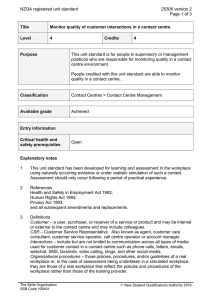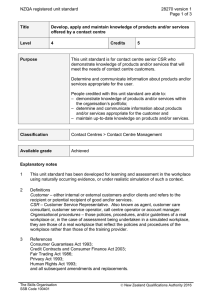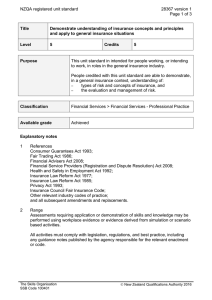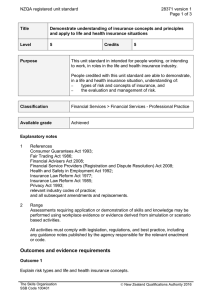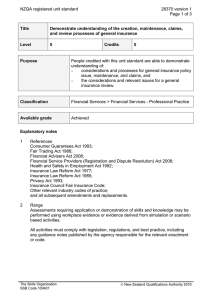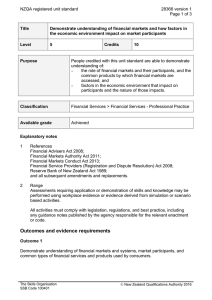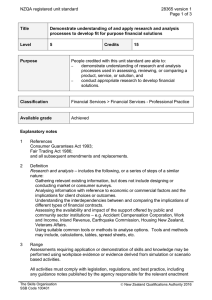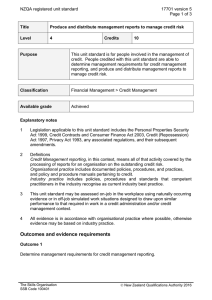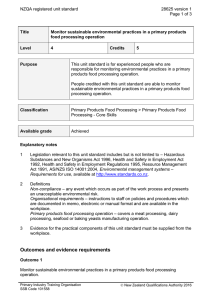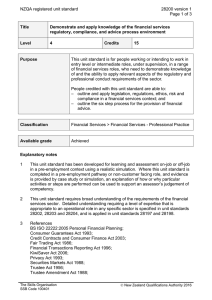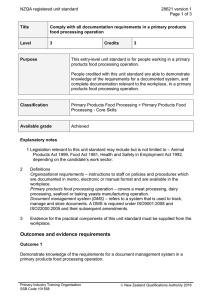NZQA registered unit standard 25305 version 2 Page 1 of 3
advertisement
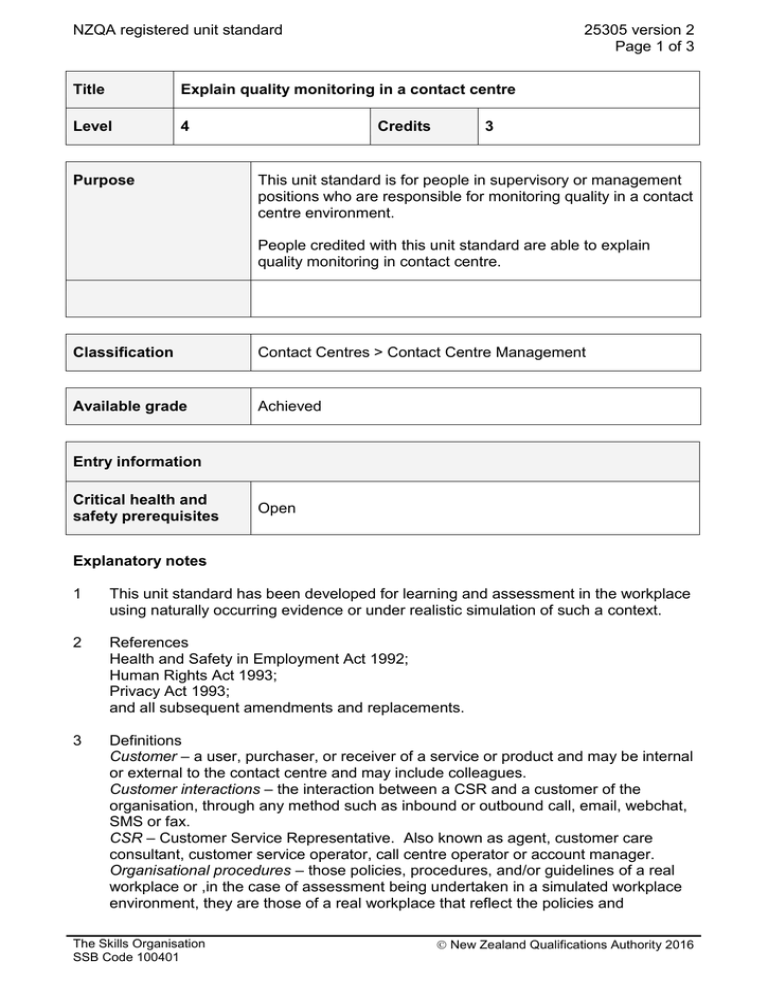
NZQA registered unit standard 25305 version 2 Page 1 of 3 Title Explain quality monitoring in a contact centre Level 4 Purpose Credits 3 This unit standard is for people in supervisory or management positions who are responsible for monitoring quality in a contact centre environment. People credited with this unit standard are able to explain quality monitoring in contact centre. Classification Contact Centres > Contact Centre Management Available grade Achieved Entry information Critical health and safety prerequisites Open Explanatory notes 1 This unit standard has been developed for learning and assessment in the workplace using naturally occurring evidence or under realistic simulation of such a context. 2 References Health and Safety in Employment Act 1992; Human Rights Act 1993; Privacy Act 1993; and all subsequent amendments and replacements. 3 Definitions Customer – a user, purchaser, or receiver of a service or product and may be internal or external to the contact centre and may include colleagues. Customer interactions – the interaction between a CSR and a customer of the organisation, through any method such as inbound or outbound call, email, webchat, SMS or fax. CSR – Customer Service Representative. Also known as agent, customer care consultant, customer service operator, call centre operator or account manager. Organisational procedures – those policies, procedures, and/or guidelines of a real workplace or ,in the case of assessment being undertaken in a simulated workplace environment, they are those of a real workplace that reflect the policies and The Skills Organisation SSB Code 100401 New Zealand Qualifications Authority 2016 NZQA registered unit standard 25305 version 2 Page 2 of 3 procedures of the workplace rather than those of the training provider. Quality monitoring – the monitoring of the interaction between a CSR in a contact centre and a customer of the organisation. SMS – Short Message Service, also referred to as text messaging 4 Range All activities and evidence presented for outcomes and evidence requirements in this unit standard must be in accordance with organisational procedures. Outcomes and evidence requirements Outcome 1 Explain quality monitoring in a contact centre. Evidence requirements 1.1 Explain the purposes of monitoring quality within a contact centre environment. may include but is not limited to – maintain and improve the quality of customer interactions, recognise quality performers, assess training needs, ensure customer expectations are met, compliance. Evidence of three is required. Range 1.2 Explain quality monitoring in terms of the benefits to a customer. 1.3 Explain quality monitoring in terms of the benefits to a CSR. may include but is not limited to – identify knowledge gaps, identify coaching requirements, customer service standards, accuracy of technical knowledge, retrieval of calls related to a dispute. Evidence of three is required. Range Planned review date 31 December 2018 Status information and last date for assessment for superseded versions Process Version Date Last Date for Assessment Registration 1 17 October 2008 31 December 2017 Review 2 17 April 2014 N/A Consent and Moderation Requirements (CMR) reference 0121 This CMR can be accessed at http://www.nzqa.govt.nz/framework/search/index.do. The Skills Organisation SSB Code 100401 New Zealand Qualifications Authority 2016 NZQA registered unit standard 25305 version 2 Page 3 of 3 Please note Providers must be granted consent to assess against standards (accredited) by NZQA, before they can report credits from assessment against unit standards or deliver courses of study leading to that assessment. Industry Training Organisations must be granted consent to assess against standards by NZQA before they can register credits from assessment against unit standards. Providers and Industry Training Organisations, which have been granted consent and which are assessing against unit standards must engage with the moderation system that applies to those standards. Requirements for consent to assess and an outline of the moderation system that applies to this standard are outlined in the Consent and Moderation Requirements (CMR). The CMR also includes useful information about special requirements for organisations wishing to develop education and training programmes, such as minimum qualifications for tutors and assessors, and special resource requirements. Comments on this unit standard Please contact The Skills Organisation reviewcomments@skills.org.nz if you wish to suggest changes to the content of this unit standard. The Skills Organisation SSB Code 100401 New Zealand Qualifications Authority 2016
